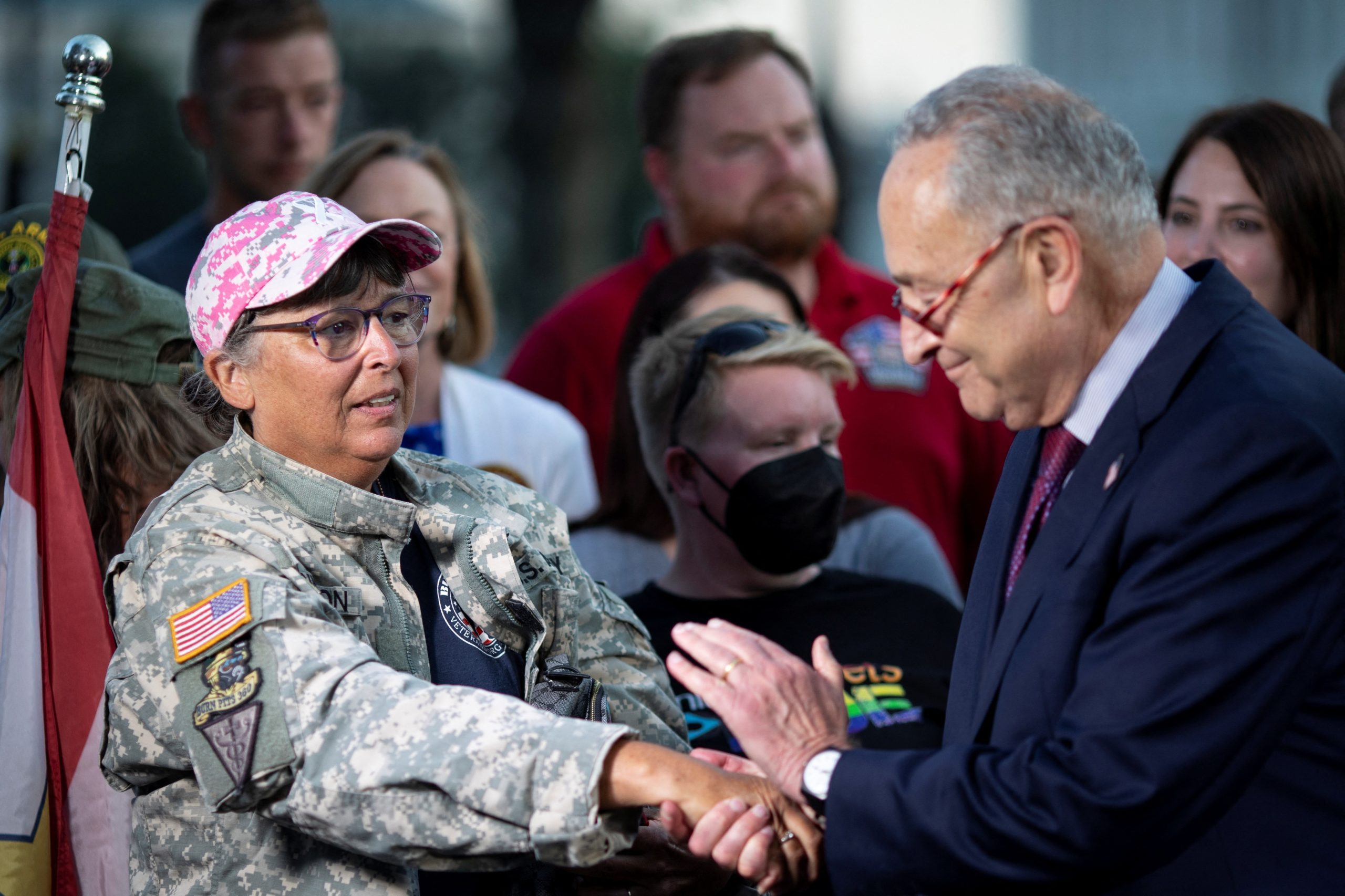
Matt Bush, FISM News
[elfsight_social_share_buttons id=”1″]
The Senate voted 86-11 on Tuesday to pass the “PACT Act” to expand VA benefits for veterans exposed to burn pits and other toxic substances.
The “Promise to Address Comprehensive Toxics” Act is described by the White House as, “the most significant expansion of benefits and services for toxic-exposed veterans in more than 30 years.”
The bill, according to some estimates, could provide coverage for as many as 3.5 million toxic-exposed veterans and is expected to cost around $280 billion over the next decade.
Military burn pits are described by the Department of Veterans Affairs (VA) as, “an area devoted to open-air combustion of trash.” Basically, to dispose of trash, largely in Afghanistan and Iraq, service men and women dug a small hole, filled it with trash, and then lit it on fire to dispose of the waste.
The VA said that the waste products often found in burn pits include but are not limited to, “chemicals, paint, medical and human waste, metal/aluminum cans, munitions and other unexploded ordinance, petroleum and lubricant products, plastics and Styrofoam, rubber, wood, and discarded food.”
The PACT Act does many things to help military families who were exposed to toxins during their time in service. Some of the new changes include: requiring the VA to provide toxic exposure screening, extending care to veterans of the Vietnam War along with those who served in the Gulf and Post-9/11 era, and improving research and treatment for toxic exposures.
Arguably, the most important thing the PACT Act does, however, is state that veterans, within certain guidelines, do not have to prove that they suffered toxic exposure-related illnesses while in the service to receive care.
“VA presumes that certain disabilities were caused by military service. This is because of the unique circumstances of a specific Veteran’s military service. If a presumed condition is diagnosed in a Veteran within a certain group, they can be awarded disability compensation,” a VA factsheet reads.
The PACT Act would make 23 specific conditions associated with toxic exposure “presumptive conditions” so that veterans could receive treatment without going through the burden of proving that their service in the military caused the condition.
Last week, after the majority of both parties supported the bill, enough Senate Republicans opposed the passing of the bill to make it stall in the Senate. The Republicans who changed their vote said they did this because the Democrats used a political ploy to move $400 billion in funding from “discretionary” to “mandatory.” This, they say, would have left $400 million in unaccounted discretionary money that Democrats could have used however they pleased.
Comedian and political activist Jon Stewart made the change “change of heart” go viral, in a profane-laced tirade claiming that Republicans were “playing games” with the veteran bill. Some Senate Democrats joined in disparaging the move by Republicans. The VFW also came out in opposition to the Republicans changing their vote, saying nothing in the bill had changed and questioned why there was a delay in the passing of the bill.
Senator Ted Cruz, R-Texas, defended his no-vote, saying he and his fellow Republicans unwaveringly supported the care for veterans, but not the $400 billion “blank check” funding that Democrats slipped into the bill.
.@jonstewart you're wrong here. The bill gives a $400B blank check—separate from vets care—for unrelated pork that will supercharge inflation. I support the PACT Act & the $679.4B it would dedicate to vets. It’s ppl trying to use PACT to shovel more pork who are exploiting vets. pic.twitter.com/xdpRTSztmB
— Ted Cruz (@tedcruz) July 30, 2022
Just one week later, the bill passed the Senate by an 86-11 margin, and the Republicans who opposed it last week said they simply wanted to add “proper spending guardrails.” Republicans wanted to know from which part of the federal budget money would be taken and how much money the bill would cost.
Majority leader Chuck Schumer said on the Senate floor, “We are dealing by and large with that exact bill again, so there is no justification to delay swift passage of the PACT Act any longer.”
Minority leader Mitch McConnel responded, after just a week of negotiations, “These kinds of back and forth happen all the time in the legislative process. I think in the end, the veterans’ service organizations will be pleased with the final product.”
